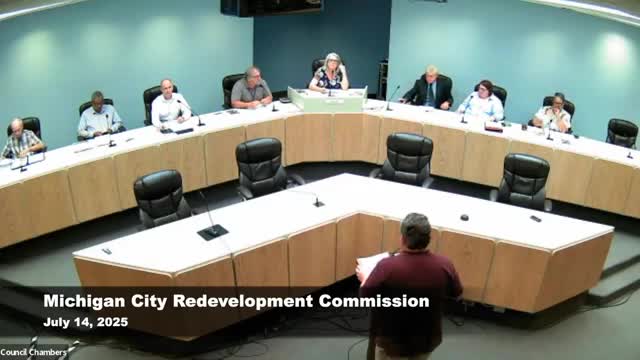Michigan City Commission Advances Solar Project Allocation Resolution
July 18, 2025 | Michigan City, LaPorte County, Indiana
Thanks to Scribe from Workplace AI , all articles about Indiana are free for you to enjoy throughout 2025!

This article was created by AI using a video recording of the meeting. It summarizes the key points discussed, but for full details and context, please refer to the video of the full meeting. Link to Full Meeting
One commission member raised concerns about the rumored $800 million data center, suggesting that it would bring minimal local employment—estimated at just 30 full-time jobs. The sentiment echoed throughout the room: while development is welcomed, this particular project may not align with the community's needs. The speaker emphasized that the contractors involved would likely be from outside the area, meaning that the economic benefits would not flow back into the local economy as hoped. “We have very limited, developable land,” they noted, urging the commission to reconsider the desirability of such developments.
The meeting also addressed the revised riverfront liquor license program, with calls for better public access to maps and graphics that outline the project boundaries. Transparency emerged as a key theme, with officials acknowledging the need for clearer communication with the public regarding development plans.
In a more positive light, the commission discussed a facade grant for the historic Cellar Door bar, one of the oldest establishments in Michigan City. The restoration efforts were met with enthusiasm, highlighting a commitment to preserving the city’s heritage while fostering local business growth.
A significant agenda item was the establishment of a new project allocation area for a solar project. Tom Everett, an attorney representing the initiative, explained that this resolution would allow the commission to collect Tax Increment Financing (TIF) from the solar project site, which is expected to finance part of the development. This step is crucial for the city’s economic strategy, as it aims to leverage renewable energy projects while ensuring that the financial obligations do not impact the city’s credit rating.
As the meeting progressed, the commission voted to approve the resolution for the solar project allocation, marking a step forward in Michigan City’s development plans. However, officials reminded attendees that this was just the beginning of a lengthy process, with further approvals needed from the city council and additional public hearings to follow.
The discussions at this meeting reflect a community grappling with the balance between welcoming new developments and ensuring they align with local interests and needs. As Michigan City looks to the future, the voices of its residents will undoubtedly play a crucial role in shaping the path ahead.
Converted from Michigan City Redevelopment Commission July 14, 2025 meeting on July 18, 2025
Link to Full Meeting
Comments
View full meeting
This article is based on a recent meeting—watch the full video and explore the complete transcript for deeper insights into the discussion.
View full meeting